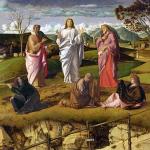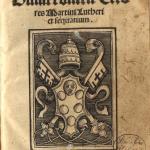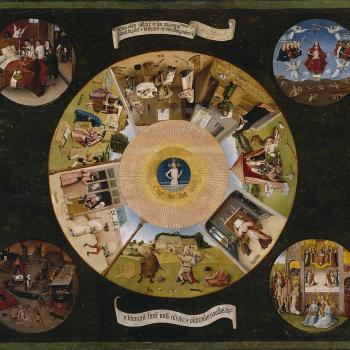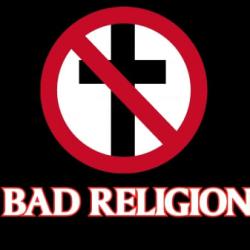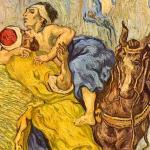
“Please Hit ‘Subscribe’”! If you have received benefit from this or any of my other 4,600+ articles, please follow this blog by signing up (with your email address) on the sidebar to the right (you may have to scroll down a bit), above where there is an icon bar, “Sign Me Up!”: to receive notice when I post a new blog article. This is the equivalent of subscribing to a YouTube channel. Please also consider following me on Twitter / X and purchasing one or more of my 55 books. All of this helps me get more exposure, and (however little!) more income for my full-time apologetics work. Thanks so much and happy reading!
Further they object: The church has accepted the four gospels, others they have not accepted. Thus the church is master over them. If not, who would know which gospel were true, perhaps Bartholomew’s gospel or another? That sounds just as if we had the gospels from the church and not from God. Christianity has accepted the book, they say, therefore Christianity is over the book. I accept the teaching of Paul, therefore I am over his teaching. Oh, that they had made the distinction between confessing and having authority! The Christian church confesses that the teaching, the Gospel, the book are true. But thereby the church is not given the authority over it. Then I could also say: I accept Christ, therefore I am over Christ. . . .*So they conclude quite foolishly: The Christian church confesses that this book and its teaching are true, therefore it is over them. These are rotten hoaxes. . . . I cannot conclude: Because I accept John’s gospel, I am over the same. For this reason say: It is not true; the Christian church does not have the authority to change a single letter. For it is written in Matthew 5:19, “Whoever breaks one of the least of these commandments, and teaches others to do the same, will be called least in the kingdom of heaven.” Add nothing and take nothing away. It should remain as Christ has ordered it. (Irving L. Sangberg, translator, The 1529 Holy Week and Easter Sermons of Dr. Martin Luther, St. Louis: Concordia Academic Press, 1999, 40-41; my italics and bolding)
First Vatican Council (1870)
These the Church holds to be sacred and canonical; not because, having been carefully composed by mere human industry, they were afterward approved by her authority; not because they contain revelation, with no admixture of error; but because, having been written by the inspiration of the Holy Ghost, they have God for their author, and have been delivered as such to the Church herself. (Dogmatic Constitution on the Catholic Faith, chapter II; emphasis added)
Second Vatican Council (1962-1965)
The divinely-revealed realities which are contained and presented in the text of sacred Scripture, have been written down under the inspiration of the Holy Spirit. For Holy Mother Church relying on the faith of the apostolic age, accepts as sacred and canonical the books of the Old and New Testaments, whole and entire, with all their parts, on the grounds that they were written under the inspiration of the Holy Spirit (cf. Jn. 20:31; 2 Tim. 3:16; 2 Pet. 1:19-21; 3:15-16), they have God as their author, and have been handed on as such to the Church herself. (Dogmatic Constitution on Divine Revelation [Dei Verbum], Chapter III, 11; emphasis added)
Roman Catholics emphatically reject the view that the church posits her own canon. They claim only that, when the canonical process has come to a close, the magisterial church provides certainty. Attention is especially focused on this closing and on the authority of the church, which performs a decisive role in this closing. Behind this we find the well-known distinction between the canonical essence of Holy Scripture (quoad se), as it is grounded in divine inspiration, and the confirmation of these books as canonical by the church (quoad nos). . . .
The church can, however, only point to and name that canonical which is in itself already truly canonical. Yet, found amid the relativity of the varied historical considerations and judgments of the first few centuries, this authority is of great importance. (Studies in Dogmatics: Holy Scripture, Grand Rapids, Michigan: Eerdmans, 1975; translated from the 1967 Dutch edition by Jack B. Rogers, 78)
*
Practical Matters: Perhaps some of my 4,600+ free online articles (the most comprehensive “one-stop” Catholic apologetics site) or fifty-five books have helped you (by God’s grace) to decide to become Catholic or to return to the Church, or better understand some doctrines and why we believe them.
Or you may believe my work is worthy to support for the purpose of apologetics and evangelism in general. If so, please seriously consider a much-needed financial contribution. I’m always in need of more funds: especially monthly support. “The laborer is worthy of his wages” (1 Tim 5:18, NKJV). 1 December 2021 was my 20th anniversary as a full-time Catholic apologist, and February 2022 marked the 25th anniversary of my blog.
PayPal donations are the easiest: just send to my email address: apologistdave@gmail.com. Here’s also a second page to get to PayPal. You’ll see the term “Catholic Used Book Service”, which is my old side-business. To learn about the different methods of contributing (including Zelle), see my page: About Catholic Apologist Dave Armstrong / Donation Information. Thanks a million from the bottom of my heart!
*
***
*
Photo Credit: [Pixabay / CC0 public domain]
Summary: Martin Luther, the founder of Protestantism, mistakenly believed that the Catholic Church regarded itself as above, or superior to, the God-breathed revelation of Holy Scripture.


